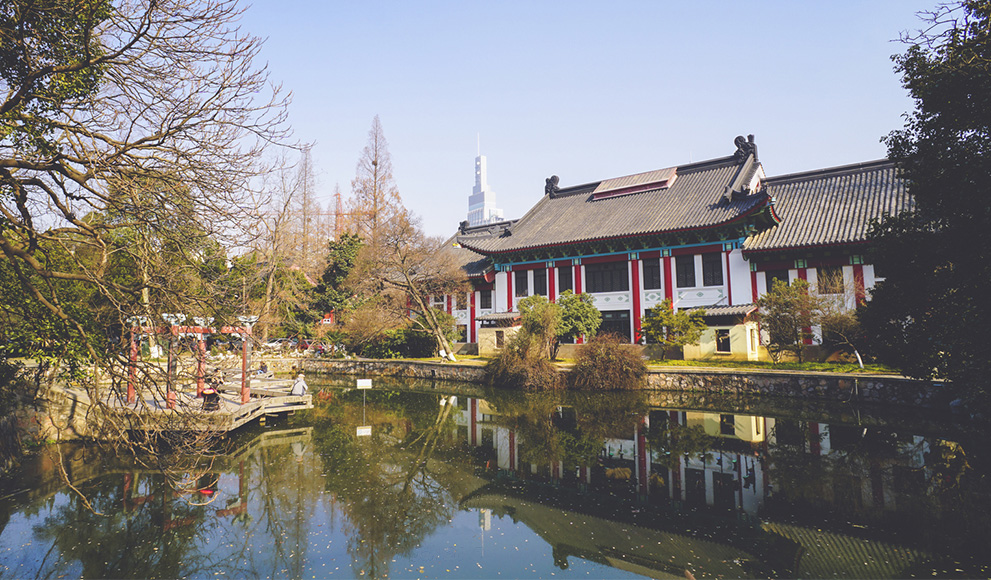Yenching Academy and Wellesley-Yenching Program Fellowships Enable Four Recent Grads to Deepen Their Understanding of Chinese Culture

Four recent graduates will travel to China or Taiwan this summer for a year of study or work. Beba Cibralic '16 and Alix Lewis '16 have been admitted to the Yenching Academy at the prestigious Peking University, while Emma Stelter '16 and Ruyi Li '16 have been selected as Elisabeth Luce Moore '24 Wellesley-Yenching fellows. Both programs have special ties to Wellesley.
The College first partnered with Peking University in 2013. William A. Joseph, professor of political science, facilitated a relationship with the newly created Yenching Academy, which seeks to increase connections between China and the world through an interdisciplinary master's program in China studies for outstanding graduates from all over the globe. The academy hopes the experience will "shape a new generation of global citizens with a nuanced understanding of China and its role in the world," as its website states.
Lewis, who is from Trinidad and Tobago, looks forward to the experience, in part because she grew up hearing stories about her great-grandparents, who emigrated from southern China in search of a better life. An economics major who minored in Chinese language and culture, she applied to Yenching, she said, because she values learning in an environment committed to diversity, cultural immersion, open-mindedness, and academic excellence. "It was the perfect program for me, much in the same way that Wellesley was the perfect undergraduate experience for me—it had everything I could possibly want," she said.
She plans to study politics and international relations at Yenching; when she returns home, she hopes to strengthen the Sino-Trinidadian (and Sino-Caribbean) relationship, especially in the areas of trade and urban development.
"I've always been curious about the way China has developed its public transportation and how that's affected its urban development (either positively or negatively), so I'm going to try and study some aspect of that and see how it can be adapted to my island," Lewis said. "A second interest area is China's development in renewable resources. My country is very petroleum-rich and -reliant, but we're going to need to move away from fossil fuels and move toward renewables."
The Wellesley-Yenching Program provides fellowships only to graduating seniors and Wellesley alumnae. As the program materials explain, these fellowships honor "the relationship between Wellesley and academic institutions in China that dates back to the early 1900's."
Stelter, a history and French double major, has been awarded the fellowship at Ginling College, in Nanjing, which allows the recipient to teach English at Ginling, a women’s college that has the mission "To prepare women to serve China."
In addition to teaching 12 to 14 hours a week, Stelter will take an online course in teaching English to non-native speakers, to qualify for the Expert Certificate, and will have the opportunity to study the Chinese language and culture.
Stelter will have the option to extend the fellowship for a second year, as did two other alumnae who are currently working at Ginling: Gabriela Cooper-Vespa '15 and Julia Shew '11. (Katie Saibara '15 will be entering her second year of teaching English at Chung Chi College in Hong Kong, another Wellesley-Yenching opportunity.)
The Wellesley-Yenching Fellowship at the National Palace Museum in Taipei allows the recipient to work at the museum, which houses the largest collection of priceless Chinese artifacts and artwork in the world. Li, an art history and English double major, is thrilled about the opportunity, especially since "I declared my art history major much later than the typical student," she said.
Li, who is from Shanghai, also appreciates the chance to live in a new place and gain a deeper understanding of the Chinese culture. "I think all of these things will benefit my personal development and lead to many new discoveries about myself," she said.
